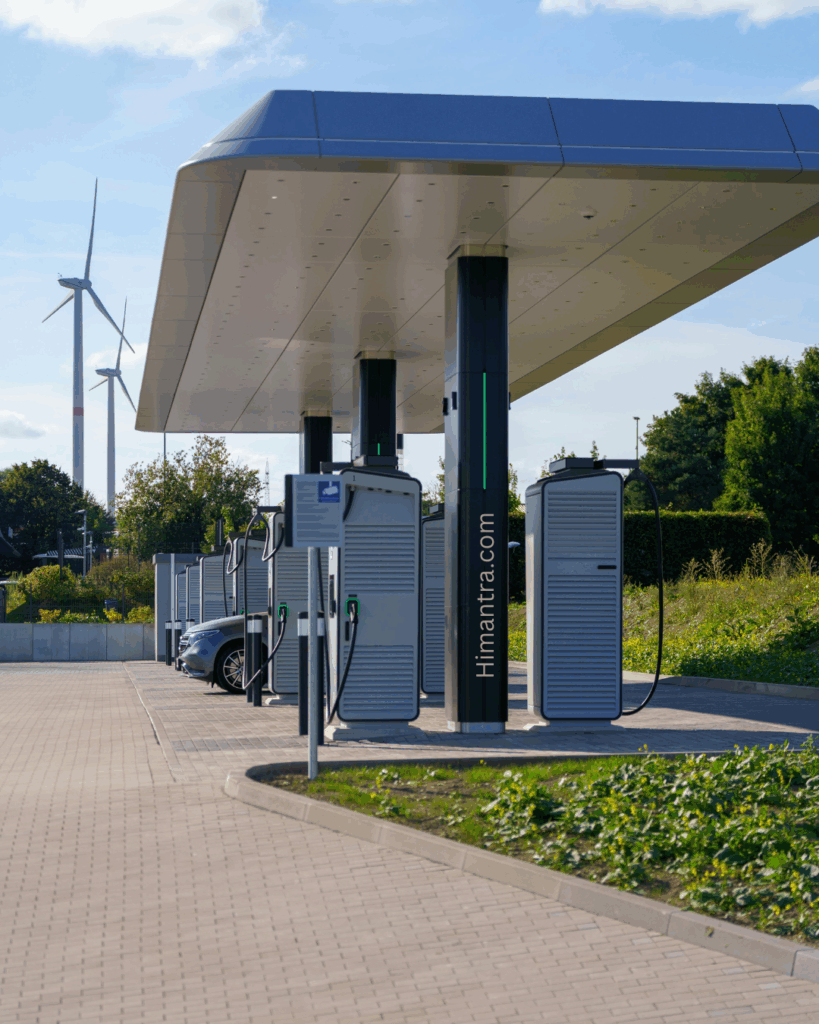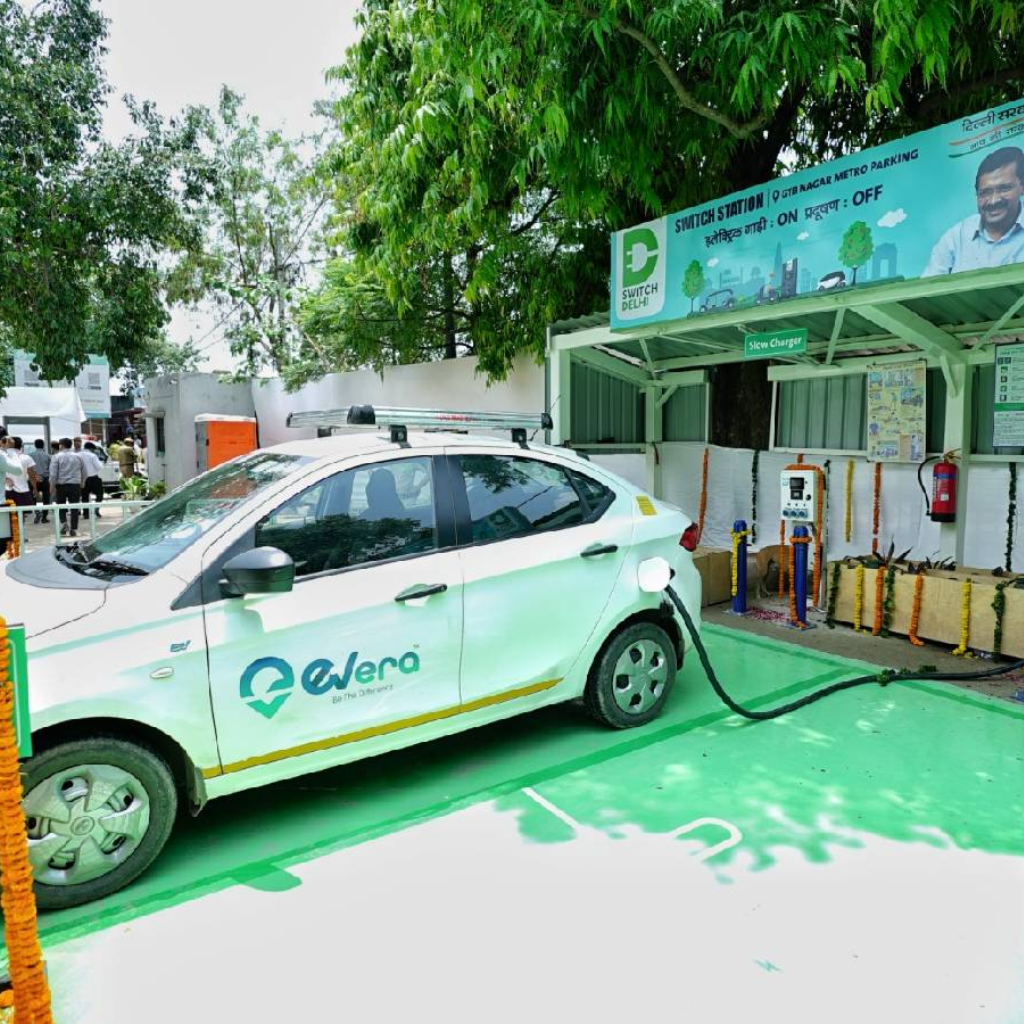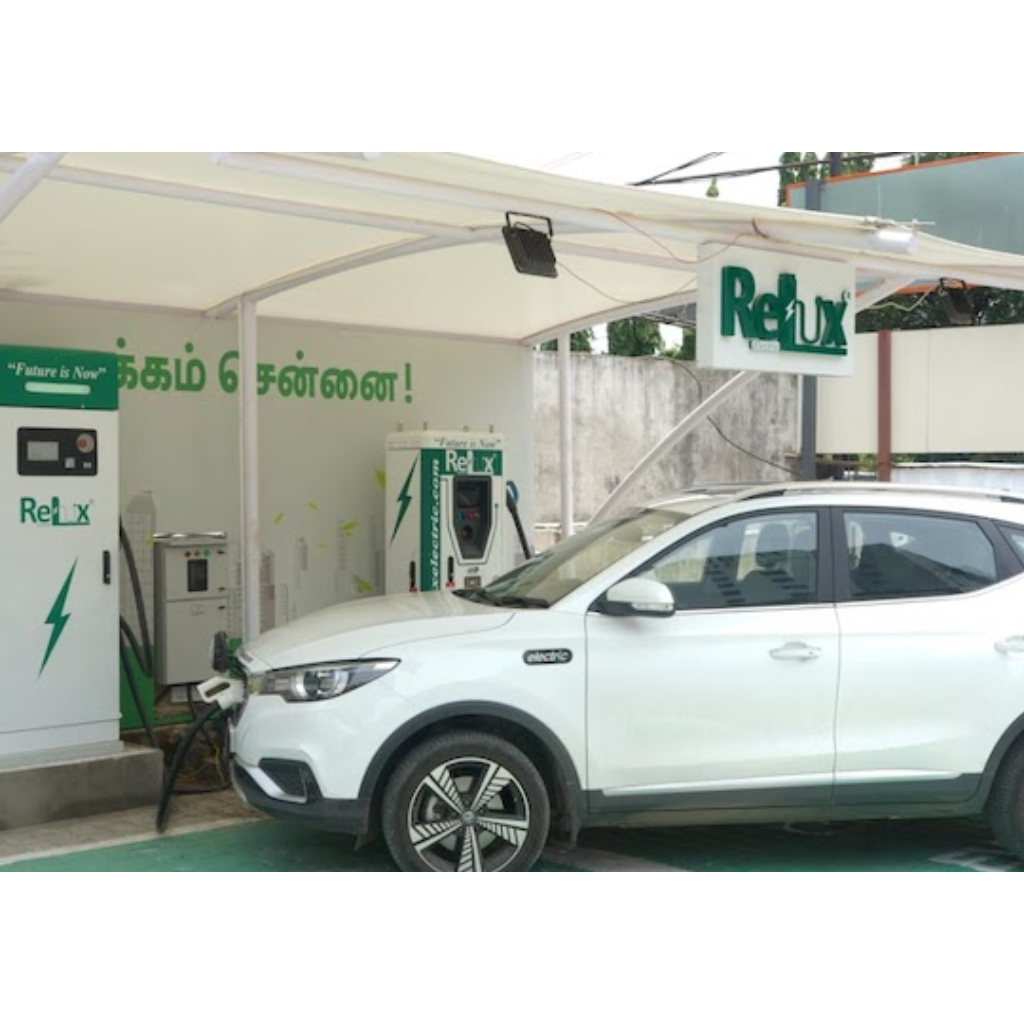EV Charging Stations in India 2025: Electric vehicles are slowly becoming a common sight on Indian roads. A few years ago, people would stop and stare when they saw an electric car, but now, most folks have seen one or two in their area. The market for EVs is growing fast, but one thing that still makes people think twice before buying is — where to charge it?

I also had the same question. Petrol pumps are everywhere, but EV charging stations still feel like a new thing for many of us. So I started looking around, checking apps, and reading reviews from actual users. To be honest, I was surprised to see how much work has already been done in metro cities. If you live in Delhi, Mumbai, or Bangalore, you can actually find an EV charging point within a few kilometers in most areas.
Let’s talk about how this whole EV charging thing works, what kind of stations are available, and which apps are actually helpful in finding “EV charging stations near me” that are working and not just shown on the map.
How EV Charging Works (in Simple Words)
When you plug an electric car or scooter into a charging point, it basically transfers electricity to the battery. The amount of power depends on the charger type.
There are mainly three types of chargers used in India:
- Slow chargers (AC type): These are mostly installed at home or small office parking lots. They take 6–8 hours for a full charge.
- Fast chargers (DC type): Found at public EV charging stations, malls, and highways. They can charge 70–80% of your battery in about 45 minutes to 1 hour.
- Superfast or ultra-fast chargers: Still limited, but they can charge some cars in under 30 minutes. These are expensive, so only a few big cities have them for now.
Almost all modern electric cars like Tata Nexon EV, MG ZS EV, and Hyundai Kona support both AC and DC charging.
How to Find EV Charging Stations Near Me
Most EV owners simply use Google Maps and type “EV charging stations near me.” It works well for general search. But not every location listed on Maps is active or functional. That’s where dedicated EV charging apps make a difference.
Apps not only show where the station is but also if the port is free, what type of charger it has, and even the cost per unit. Some of them also allow you to start or stop the charging directly from your phone.
Let’s go city by city and talk about the real options available right now.
Delhi NCR: SwitchDelhi, ElectricPay, and More
Delhi has become one of the most EV-friendly cities in India. The Delhi government launched the SwitchDelhi campaign to promote electric vehicles and build a strong public charging network.

If you search “EV charging stations near me” in Delhi, you’ll see stations installed by companies like Tata Power EZ Charge, Statiq, Fortum Charge & Drive, and ElectricPay.
- SwitchDelhi Portal: This government-backed website and app show live data of public chargers across Delhi. You can filter by type (slow or fast) and also see pricing.
- ElectricPay: A newer app developed by DISCOMs in Delhi. It connects you to BSES or NDMC-operated chargers. Payment is simple using UPI or card.
- Tata Power EZ Charge: One of the biggest private networks. You’ll find these in malls, offices, and even residential complexes.
- Statiq: Has built stations along Delhi–Gurgaon Expressway and inside city markets like Lajpat Nagar and Connaught Place.
From my quick check last week, Delhi NCR now has over 2,500 public charging points. Many of them are near metro stations, parking areas, and shopping malls. That’s a big jump compared to just 100–200 a few years ago.
Mumbai: Tata Power Leads the Game
Mumbai is home to Tata Power, and naturally, their EZ Charge network is very strong here. You can spot them at Phoenix Mall, Inorbit Mall, and several Tata dealerships.
Other apps like ChargeZone and Fortum also operate here. One thing I noticed is that several hotels, especially near the airport and Bandra areas, have installed their own EV chargers for guests. Even some petrol pumps run by HPCL and IOCL now have fast chargers set up.
Finding “car charging stations near me” in Mumbai is easy now if you stay near central or western suburbs. Navi Mumbai and Thane areas also have good coverage, but a few spots still lack proper signage.
If you use the PlugShare app, you can even see user photos and reviews for each charger. That helps avoid fake or offline locations.
Bangalore: The Tech City Goes Electric
No surprise here — Bangalore is among the top cities for EV adoption. You’ll find a good mix of two-wheelers and cars using charging stations every day.
The best part is the variety. You have Ather Grid stations for scooters, Statiq and Zeon Charging for cars, and even Jio-bp Pulse entering the scene.
Ather has done a smart thing by placing chargers near cafes and bakeries, so you can sit and relax while your scooter charges. That’s why it became so popular among youngsters.
Tata Power EZ Charge and Zeon have a strong presence in tech parks and highways connecting Bangalore to Mysore and Chennai. I tried searching “EV charging stations near me” in Indiranagar and Koramangala, and there were easily 15+ options within 5 km.
Chennai: Zeon Charging and Relux Electric Stations
Chennai is catching up quickly, thanks to both government and private efforts. TANGEDCO (Tamil Nadu Generation and Distribution Corporation) has started installing public EV chargers in collaboration with companies like Zeon and Relux Electric.

- Zeon Charging: One of the largest private networks in South India. Offers both AC and DC chargers. The app is clean and easy to use.
- Relux Electric: Focuses more on highway charging across Tamil Nadu. Their stations are near petrol pumps and restaurants.
- TANGEDCO Charging Points: Some of these are directly operated by the electricity board, which gives people more trust in reliability.
Chennai also has chargers inside IT parks like TIDEL Park and Ascendas. People who commute from Tambaram to OMR route are already using them regularly.
Hyderabad: A Mix of Private and Public Networks
Hyderabad’s EV scene is still growing, but already doing better than many smaller cities. The government launched the Telangana EV Policy a while back, and several private players joined in.
The Power Grid Corporation of India has installed a few fast chargers in partnership with local agencies. Statiq, ChargeZone, and Volttic are also active here.
I found that malls like GVK One and Sarath City Capital Mall have proper charging zones with multiple ports. Hotels are slowly joining too.
The ElectricPay app shows some stations here as well since it partners with multiple state networks.
Kochi and Kerala: KSEB Charging Stations
Kerala deserves a separate mention. The Kerala State Electricity Board (KSEB) has done a fantastic job by setting up reliable public chargers in cities like Kochi, Trivandrum, and Kozhikode.
Their own KSEB EV app helps you locate, book, and pay for charging. Users say it’s simple and rarely goes down. Most stations are DC fast chargers, which makes them perfect for quick top-ups.
Even tourists driving electric cars to Munnar or Alleppey have shared good experiences finding chargers along highways. This shows how even a smaller state can lead in EV infrastructure if the planning is good.
EV Charging Apps That Actually Work in India
Here’s a quick list of the most reliable charging apps people are using in Tier 1 cities:
| App Name | Main Features | Available In | Extra Info |
|---|---|---|---|
| Tata Power EZ Charge | Wide coverage, reliable, UPI payment | All metros | Easy to use, backed by Tata |
| Statiq | Public + private locations, live availability | Delhi, Bangalore, Hyderabad | Shows pricing and speed |
| Zeon Charging | South India focus, fast chargers | Chennai, Bangalore, Coimbatore | Good for long routes |
| PlugShare | Community-based, real user photos | Pan India | Free and trusted |
| ElectricPay | Government-linked, safe payment | Delhi, Hyderabad | Works with BSES and NDMC |
| ChargeZone | Strong highway network | Mumbai, Gujarat, Pune | Best for road trips |
| SwitchDelhi | Govt data for public chargers | Delhi NCR | Accurate and official |
| Jio-bp Pulse | Expanding network | Mumbai, Bangalore | Backed by Reliance and BP |
| Ather Grid | Scooter-focused, free charging | Bangalore, Chennai, Pune | Ideal for Ather scooter users |
If you plan long trips, these apps help plan stops, track consumption, and even check crowd levels. Just make sure your mobile data is working because sometimes, especially on highways, signal can be weak near chargers.
Home Charging vs Public Charging
Most car owners prefer home charging for daily use. If you drive short distances, it’s enough. But public chargers are essential for longer routes or when you’re out for the day.
Home charging costs around ₹8–₹10 per unit, while public fast chargers can go from ₹18–₹25 per unit. Still, even at higher prices, it’s cheaper than petrol or diesel.
Setting up a home charger is not too hard. You just need a proper plug point near your parking space. Apartment residents may have to ask for society permission, but once installed, it’s easy to manage.
The Highway Experience
Long drives in electric cars are finally becoming possible. Highways like Delhi–Agra, Mumbai–Pune, and Chennai–Bangalore now have charging points roughly every 80–100 km.
Companies like ChargeZone and Zeon are putting DC chargers at restaurants and rest stops, so you can have tea while the car fills up.
Some new EVs even show nearby charging points on their display screen, which helps a lot when you’re on the move.
Small Tips from Real Users
- Always check if the charger is working before reaching there. Apps like PlugShare can help.
- Avoid draining battery below 10%. EVs perform better when charged around 20–80%.
- Keep your charging cable dry and avoid using it during rain.
- If you’re on highways, plan the next stop before you start.
- For home charging, check socket temperature after long use once in a while.
These small habits keep your car and charger safe.
FAQ
Use Google Maps or apps like PlugShare, Tata Power EZ Charge, Statiq, or SwitchDelhi.
Delhi, Mumbai, and Bangalore are currently leading. Chennai and Hyderabad are growing fast.
It’s a mobile app connected with Delhi’s power companies like BSES and NDMC to show and manage public EV chargers.
Most are, especially those on main roads and near petrol pumps.
Between ₹300 to ₹900 depending on your car battery and charger type.
Yes, with a wall-mounted charger or normal socket, depending on your setup.
Always check recent reviews on PlugShare or call the helpline mentioned on the charger.
Yes, most apps like EZ Charge, Statiq, and ElectricPay allow UPI or card payment.
Usually 40–60 minutes for 80% charge.
Yes, as long as the connector type matches. Most public chargers now support multiple brands.






